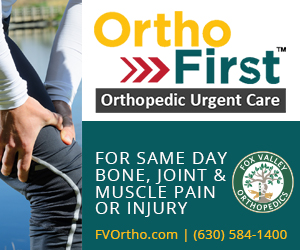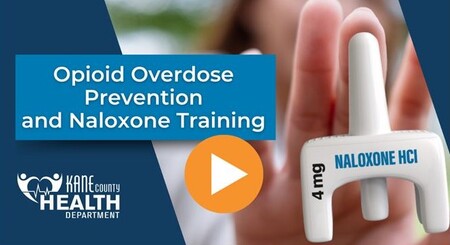Fox Valley Orthopedics
Carpal Tunnel Syndrome (CTS) is characterized by a range of uncomfortable aches and pains, such as numbness, tingling, and weakness, affecting the hands and wrists. CTS is caused by compression or pressure on the median nerve, at the wrist. CTS can be triggered by repetitive hand and wrist movements, injury, or underlying health conditions.
Risk Factors
Multiple factors are linked to the development of CTS. While they may not directly lead to the condition, they can heighten the likelihood of irritation or injury to the median nerve.
- Anatomic Factors: A wrist fracture, wrist dislocation, or arthritis that deforms the small bones in the wrist can alter the space within the carpal tunnel and put pressure on the median nerve.
- Sex: CTS is more common in women because the carpal tunnel is smaller compared to men. Pregnancy and other hormonal changes affecting fluid retention can also reduce the space in the carpal tunnel and compress the median nerve.
- Obesity: Being overweight can increase the risk of CTS as excess body fat can put pressure on the median nerve.
- Nerve-Damaging Conditions: Some chronic illnesses, like diabetes, increase the risk of nerve damage, including damage to the median nerve.
- Repetitive Use: Certain types of activities can also increase your risk, including repetitive work with your hands and wrists
Symptoms of Carpal Tunnel Syndrome
Below are some of the most common symptoms associated with CTS. It is not unlikely for patients to experience more than one symptom.
- Numbness or tingling in the hand or fingers
- Pain or discomfort in the hand or wrist
- Pain or numbness that is worse at night
- Weakness when gripping objects
- Swollen feeling in fingers
- Difficulty with fine motor skills
Diagnosis
Your physician will examine your medical history and physically examine your hand and wrist. Your doctor will want to know about patterns with your symptoms, so watch for these in your daily life. Doctors may request imaging, such as X-rays or ultrasounds. An X-ray will not show if you have Carpal Tunnel, but it can help rule out other conditions with similar symptoms. For further diagnostics, your doctor may also recommend electromyography or nerve conduction studies to get a better analysis of your nerve function.
Treatment Options
If diagnosed and treated early, the symptoms of carpal tunnel syndrome can often be relieved without surgery. If your diagnosis is uncertain or if your symptoms are mild, your physician will recommend nonsurgical treatment first.
Nonsurgical Treatments
- Bracing or Splinting: Using a brace or splint during the night can prevent you from inadvertently bending your wrist while you rest. Keeping your wrist in a straight or neutral position alleviates pressure on the nerve in the carpal tunnel. It’s essential to move your joint during the day to keep it from becoming weak or stiff.
- Nonsteroidal anti-inflammatory drugs (NSAIDs): Anti-inflammatory medications, such as Ibuprofen, can help relieve pain and reduce inflammation.
- Steroid Injections: A steroid injection can help alleviate symptoms by reducing inflammation and swelling in the wrist.
- Activity Changes: Symptoms often occur when your hand and wrist are in the same position putting pressure on the nerve for too long. Changing or modifying these activities can slow or stop the progression of the disease.
- Exercises: Some patients may benefit from exercises that help the median nerve move more freely within the confines of the carpal tunnel.
If you are in a profession with a high predisposition to CTS or you often participate in activities that are known to lead to this condition, you should try preventive measures before symptoms arise. Preventive measures can include taking frequent rest breaks, stretching and exercising your fingers, wrists, and hands, and improving the ergonomics of your workspace.
Surgery Treatments
Carpal Tunnel Syndrome can be cured with carpal tunnel release surgery. This will release the ligament around the carpal tunnel to relieve pressure off the median nerve. Carpal tunnel release surgery is performed on an outpatient basis.
After surgery, you will have stitches and a bandage. You can use your hand lightly for the first two weeks and then increase activity gradually. Your doctor will provide specific timeframes to avoid injury and ensure you heal properly.
Fox Valley Orthopedics (FVO) provides musculoskeletal care in the diagnostic and comprehensive treatment of acute or chronic orthopedic conditions or injuries. FVO board-certified/board-eligible physicians specialize in all areas of orthopedics and draw from multiple treatment options to provide both surgical and non-surgical solutions. To learn more, visit FVOrtho.com, or call 630-584-1400.










